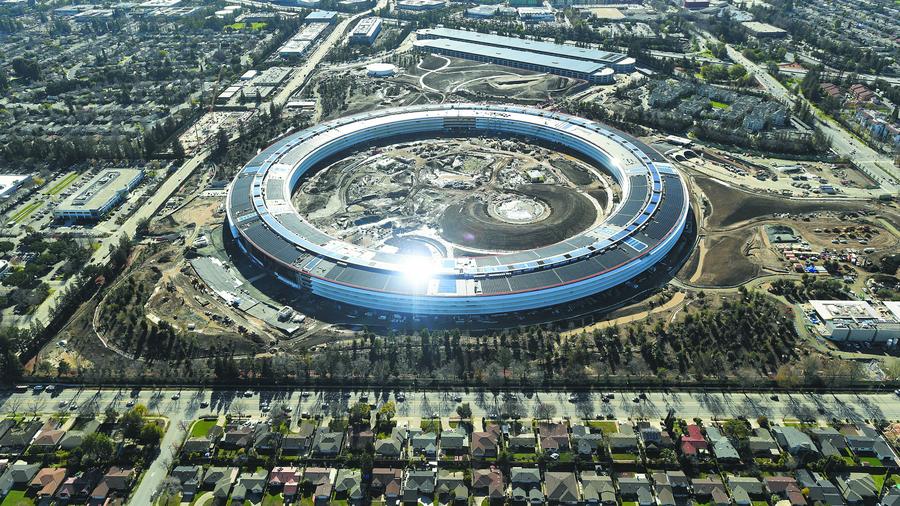The Cupertino City Council will take a second bite at Apple Inc. on Tuesday when it reconsiders its June decision to wait a couple of years on calling for a referendum on a new business tax.
In June, the council deadlocked 2-2 over when — not whether — to follow Mountain View’s lead in restructuring its business tax structure around the number of people each company in town employs. The current Cupertino tax is based on the size of a business’s office space.
The draft ordinance would raise Cupertino’s current business tax revenue from about $800,000 a year by 1,275 percent to $10.2 million. Apple, which employs two-thirds of the workers in town, would be saddled under the new formula with a $9.4 million tax bill as a result.
Cupertino Chamber of Commerce CEO Anjali Kausar said her group wants the issue pushed back until 2020 but is not opposed to the new tax in principle.
“The city should work with the local businesses and the local chamber to come up with what is the right way to do this,” she said. “There hasn't been enough time given to it because right now what the City Council is proposing is a general revenue tax, which does not necessarily address the traffic problems.”
Even the two council members who voted last time to wait two years spoke then of the need to raise the tax because the growth of big tech companies like Apple drives the traffic congestion that chokes city streets. The iPhone maker opened Apple Park, its new headquarters for more than 12,000 employees, in the city last year. The campus famously doesn't link up with mass transit.
But the chamber insists that there be a specific transportation improvement plan to be funded by the tax and that the tax be spent exclusively on transportation. That makes it more likely a tax proposal could be defeated once it goes to voters.
The reason is that a tax increase that goes into a city’s general fund to be spent at a City Council’s discretion requires only a one-vote majority. A tax for a specific purpose needs two-thirds of voters to approve.
Along with the decision about when to send an ordinance to voters, the council will also consider a resolution stating the ballot measure “is a general tax and may legally be used for unrestricted general governmental purposes” but that says its intent to dedicate the revenue to transportation.
The effort in Cupertino is just the latest example of local governments attempting to squeeze more revenue from the business community to address issues such as housing shortages and traffic congestion — problems many see as exacerbated by the tremendous growth of large tech companies. Voters in Mountain View — home to Google and its parent company, Alphabet Inc. — will consider a similar tax in November, after its City Council voted last month to send the initiative to this fall's ballot. The "head tax" proposals in Cupertino and Mountain View are similar to a tax that passed in Seattle earlier this year, but was quickly rescinded following stiff opposition from that city's business community, including e-commerce giant Amazon.com.
At the same time that governments are attempting to levy more taxes on business, there is a movement afoot, often spearheaded by business interests, to limit government's ability to raise taxes by expanding a requirement for super-majorities, such as for specific taxes in California, to all tax hikes, which is a concern for government.
California’s soft drink industry earlier this year backed a petition drive to require a two-thirds majority for any kind of future tax increase but dropped it after Gov. Jerry Brown signed a hastily drafted bill from the legislature to ban soda taxes for 12 years. State Sen. Scott Wiener, D-San Francisco, accused beverage makers of “aiming a nuclear weapon at government in California and saying, ‘If you don’t do what we want, we are going to pull the trigger and you are not going to be able to fund basic government services.’ ”
